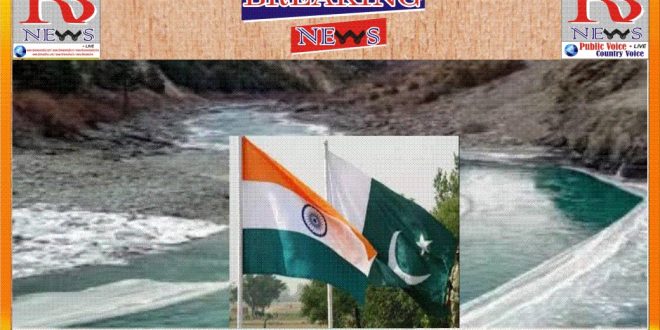The Indian government has sent a strong and clear notice to the Pakistani government to review the Indus Water Treaty. India has said in the notice sent to Pakistan that this treaty has become very old and it wants a change. This agreement was made regarding the sharing of river water between the two countries. India has argued in the notice that since the time this agreement was made in 1960, the conditions of both the countries have changed a lot, so there is a need to change this treaty as well.
According to sources, India had sent a formal notice on August 30 itself under Article 12(3) for the review of the Indus Water Treaty. However, there has been no response from Pakistan in this regard. It has been almost two weeks since the notice was sent. India believes that in the last six decades, India’s population has increased, there has been a change in the needs of agriculture here, so the Indus Water Treaty should be reviewed in view of the increasing needs of water.
What is the Indus Water Treaty?
This is an agreement between India and Pakistan regarding the distribution of river water. This treaty was signed on 19 September 1960 in Karachi. The treaty was signed by the then Prime Minister of India, Pt. Jawaharlal Nehru and the then President of Pakistan, Ayub Khan. The World Bank had mediated in this agreement. After the initiative of the World Bank and the United Nations, the tension of water sharing between the two countries was reduced.
Under the Indus Water Treaty of 1969, India was given control over the three rivers of the eastern part, such as Beas, Ravi and Sutlej, while Pakistan was given the rights over the three rivers Indus, Chenab and Jhelum. An agreement was made between the two countries regarding the use of the water of these rivers. The quantity of water was determined.
Dispute since the time of independence
The Indus river has been a subject of dispute between four countries. This dispute has been going on since the country got independence in 1947. These four countries are India, Pakistan, Afghanistan and China. Whereas this river flows from Tibet. There have been many disputes between India and Pakistan over this river. When India stopped giving water to Pakistan in 1948 to teach Pakistan a lesson, Pakistan appealed to the United Nations. After which, on the initiative of the United Nations, the World Bank got this agreement done in 1954, which could be signed in 1960.
Permanent Indus Commission was also established
Seeing the dispute over water sharing, the United Nations established a permanent Indus Commission. According to this treaty, India could use 20 percent of the water of this river for domestic use and Pakistan could use 80 percent of the water. But later, both the countries accused each other for encroachment and violation of rules in its use.
However, according to the agreement, water can be drained freely in natural disasters like floods and special circumstances. During the action, there will be no formal restriction on the area of the border of India and Pakistan. Both the countries can neither accuse each other nor refuse.
How useful is the treaty review?
The rivers flowing on the border are very important for Jammu-Kashmir and Punjab. India has built three dams – Bhakra Dam on Sutlej River, Pong Dam on Beas River, Pandoh Dam and Ranjit Sagar Dam on Ravi. According to information, about 2 MAF water from Ravi flows uselessly into Pakistan every year. India has tried many times to stop this. For example, Shahpur Kandi Project was built to use the water coming from Thein Dam in agriculture and power projects in Punjab and Jammu-Kashmir.
 RB News World Latest News
RB News World Latest News






